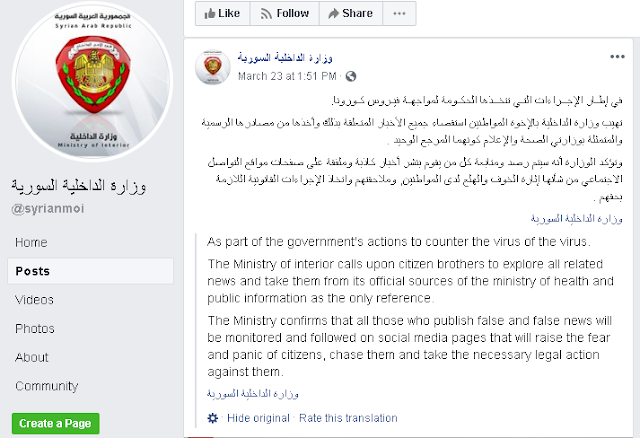The virus spreading faster than coronavirus: Antisemitism
As for the BDS movement, they have been relatively quiet on the question of whether or not they would use a (hypothetical) Israeli vaccine, but at least one pro-BDS Press TV journalist, Roshan Salih, tweeted he would rather be infected by coronavirus than use an Israeli product. Apparently, hating Israel is more important than living to some of these BDS activists. When Salih was mocked on social media, he reverted to another conspiracy claiming “Israel’s troll army” attacked him online.Jonathan S. Tobin: The Zionist Congress election and the truth about American Jewry
No less hateful than the conspiracy theories and hate speech, there has also been a litany of outrageous comments exploiting the coronavirus pandemic to smear the state of Israel. From journalists, to organizations like Human Rights Watch (HRW), to Jewish extremist groups like IfNotNow, to Palestinian NGOs, comments which pre-emptively assume that Israel is failing to assist the Palestinians are spreading faster than the coronavirus itself.
Another popular talking point in these crowds has been using the pandemic to talk about occupation. “Students for Justice in Palestine” held a campus event on the topic in the US - before American universities were ordered shuttered. Regardless of one’s position on the Palestinian-Israeli conflict, if your response to a global pandemic is to bash Israel you can’t be surprised when your motives are questioned. After all, the line between condemning policy and outright antisemitism has been repeatedly crossed in such statements. Last week a former HRW employee, Sarah Whitson, tweeted that Israel is only “missing a tablespoon of blood” in its oppression of Palestinians, a classic antisemitic trope about bloodthirsty Jews. Whitson later deleted the tweet saying it was being “misunderstood” but carried on bashing Israel. It’s no coincidence that statements like this “accidentally” come out when those who hold deeply ignorant and antisemitic views use words like “Israel” or “Zionism” as socially acceptable replacements for the words “Jews” and “Judaism.”
The plague of antisemitism is an ongoing problem on social media, as social media provides uncensored and sometimes anonymous platform to broadcast to the entire world. But this global pandemic has shown, in just a matter of days, that antisemitism today flourishes not just from the usual neo-Nazi or radical Islam fringes, but from the general public – world leaders, journalists, human rights activists, and more. Once again, irrational obsession with Jews demonstrates that antisemitism is not a marginal problem but all-too-mainstream.
It’s been derided as irrelevant and a relic of the distant past that ought to have been junked decades ago. But the World Zionist Congress election that has just concluded generated more interest and participation than it has in decades.Freeing the Captives
Just as interesting is a clear shift in the results from elections that just wrapped up on March 11 showing an increase in support for Orthodox slates and groups that identify with Israel’s Likud Party and other right-leaning groups. While the increased participation is a healthy sign for the Zionist movement, the gap between these results and polls of American Jewish opinion illustrate something else.
The Zionist Congress is significant because it helps control a nearly $1 billion budget that can support projects in Israel. Americans make up about one-third of those who will attend the gathering, which was scheduled to be held this summer.
Those who voted for the Congress may well be representative of the opinion of Jews who remain affiliated with synagogues and care deeply about Israel. But that distance between that segment of the population and the far larger group of Jews who are not motivated to take part in a Zionist Congress election is greater than ever. Though the vote produced a result that was surprisingly encouraging for most of those who consider themselves part of the pro-Israel community, it may also show that those who answer to that label are actually a minority of those Americans who consider themselves, by one definition or another, Jewish.
The vote that was held online from January through March generated a turnout of 123,629 votes. That may not sound like much when you consider that the Jewish population in the United States is about 7.5 million, according to the generous estimate of the Brandeis University Steinhardt Social Research Institute with the same study claiming that if you define it solely by religion, there are only 4.4 million American Jews.
That notwithstanding, the voters are a significant sample of the opinion of Jews who care enough about Israel and Zionism to pay a modest fee to register and declare support for the Jerusalem Program of the Zionist movement.
Review of 'Genius and Anxiety' by Norman Lebrecht
Why the Jews? By a liberal definition of tribal membership (meaning those with at least one Jewish parent), there are around 17 million Jews in the world—about the population of Kazakhstan. An ancient civilization, Kazakhstan boasts a 99.5 percent literacy rate, but while it has produced writers and scientists, their names are not exactly household words.
Contrast this with the Jews. They invented monotheism, Hollywood, gefilte fish, relativity, and free will (Adam chose to eat the apple). Over the centuries, Jewish über-achievers range from Marx, Freud, Proust, Kafka, and Einstein to Mahler, Mendelssohn-Bartholdy, Gershwin, and Dylan; to Disraeli and Leon Blum; to Jonas Salk (polio vaccine) and Paul Ehrlich (chemotherapy); to Silicon Valley titans such as Sergei Brin and Larry Ellison; to Kirk Douglas, Steven Spielberg, and Seinfeld. Not to mention Groucho. Or Helena Rubinstein and Estée Lauder, who cooked up modern cosmetics.
So how did the Jews, who make up .2 percent of mankind, “change the world?” This is the question Norman Lebrecht asks in the subtitle of his new book, Genius and Anxiety. “I am not about to make a case for Jewish exceptionalism,” he answers, “nor do I believe that Jews are genetically gifted above the average.” Instead, he ascribes Jewish seichel to “culture and experience rather than DNA.” It’s all due to numeracy, literacy, and critical reasoning—the stuff of Talmudic study.
Lebrecht keeps referring to the causal role of the Talmud throughout his book, suggesting that even Freud and Einstein, who had never set foot in a yeshiva, were somehow formed by Talmudic sages who kept arguing ad infinitum for some 300 years at the beginning of the first millennium following the destruction of the Temple. But it is a long trip from Babylon and Jerusalem to Vienna and Berlin, from the Talmudic giants to the secularized, even areligious Jews of the 19th and 20th centuries, many of whom (or their parents) had converted to Christianity.
So let’s posit, as Lebrecht suggests we should, that somehow the ancient masters of pilpul handed the art of disputation down through the generations. After all, Freud’s father, Jacob, a wool merchant, was a Torah scholar.
But if “like father, like son” is the transmission belt, there are two problems.







































